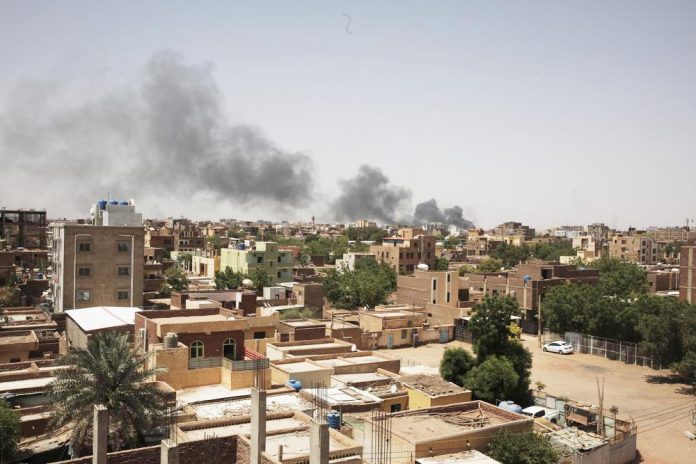
American special forces, numbering just over 100, flew into Sudan from Djibouti Saturday morning at 9 a.m. Eastern to evacuate American diplomats and their dependents, as fighting intensified between the two sides led by Gen. Abdel Fattah Burhan, head of the armed forces, and Gen. Mohammed Hamdan Dagalo, the leader of a paramilitary group known as the Rapid Support Forces.
The fighting has killed over 400 people as of Sunday.
Secretary of Defense Lloyd J. Austin III said the evacuation was under the command of U.S. Africa Command and conducted in close coordination with the U.S. State Department. “I’m proud of our extraordinary service members who executed and supported this operation with outstanding precision and professionalism,” he said.
The special operations personnel with their aircraft — including three MH-47 Chinooks spent less than an hour on the ground in Khartoum in their mission, the Pentagon said in a statement.
The evacuation came after the embassy posted Saturday on its twitter account that it has suspended operations due to “the continued threat from armed conflict in Sudan.”
But more than 16,000 Americans remain in Sudan, and that is just the number that is registered with the embassy as not every American takes time to do so, or indicate when they have left the country.
“In the coming days, we will continue to work with the State Department to help American citizens who may want to leave Sudan,” said Christopher Maier, the assistant secretary of defense for special operations and low-intensity warfare.
“One of those ways is to potentially make the overland routes out of Sudan potentially more viable. So, DOD is at present considering actions that may include use of intelligence, surveillance and reconnaissance capabilities to be able to observe routes and detect threats,” said Maier.
What Americans in Sudan can do following embassy closure
Following the closure of the US Embassy in Khartoum, the State Department in a pinned tweet on the shuttered embassy’s Twitter account, offered the following guidelines to Americans still in Sudan:
Security Alert: On April 22, 2023, the U.S. Embassy in Khartoum suspended its operations, and the Department of State ordered the departure of U.S. direct hire employees and their dependents due to the continued threat from armed conflict in Sudan. The U.S. government cannot…
— U.S. Embassy Khartoum (@USEmbassyKRT) April 23, 2023
About Tom Gitaa Gitaa, Editor-in-Chief
Born and raised in Kenya's coastal city of Mombasa, Tom is the Founder, Editor-in-Chief and Publisher of Mshale which has been reporting on the news and culture of African immigrants in the United States since 1995. He has a BA in Business from Metro State University and a Public Leadership Credential from Harvard’s Kennedy School of Government. He was the original host of Talking Drum, the signature current affairs show on the African Broadcasting Network (ABN-America), which was available nationwide in the United States via the Dish Network satellite service. On the show, he interviewed Nobel laureates such as 2004 Nobel Peace prize winner, Professor Wangari Maathai, the first woman from Africa to win the peace prize and heads of states. Tom has served and chaired various boards including Global Minnesota (formerly Minnesota International Center), the sixth largest World Affairs Council in the United States. He has previously served as the first Black President of the Board of Directors at Books for Africa. He also serves on the boards of New Vision Foundation and the Minnesota Multicultural Media Consortium. He has previously served two terms on the board of the United Nations Association. An avid runner, he retired from running full marathons after turning 50 and now only focuses on training for half marathons.
- Web |
- More Posts(431)





